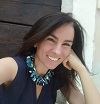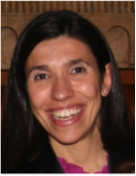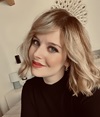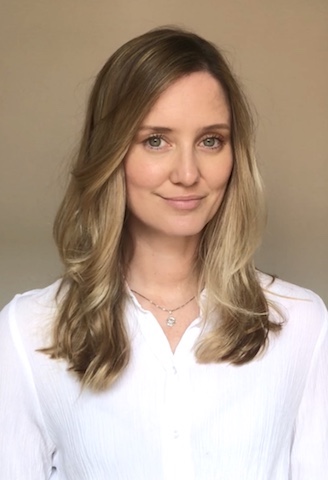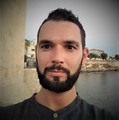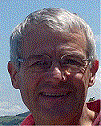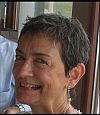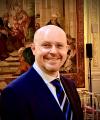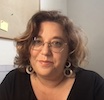Studying at the University of Verona
Here you can find information on the organisational aspects of the Programme, lecture timetables, learning activities and useful contact details for your time at the University, from enrolment to graduation.
Academic calendar
The academic calendar shows the deadlines and scheduled events that are relevant to students, teaching and technical-administrative staff of the University. Public holidays and University closures are also indicated. The academic year normally begins on 1 October each year and ends on 30 September of the following year.
Course calendar
The Academic Calendar sets out the degree programme lecture and exam timetables, as well as the relevant university closure dates..
| Period | From | To |
|---|---|---|
| Sem. 1A | Sep 24, 2018 | Oct 27, 2018 |
| Sem. 1B | Nov 19, 2018 | Dec 21, 2018 |
| Sem. 2A | Feb 18, 2019 | Mar 23, 2019 |
| Sem. 2B | Apr 8, 2019 | May 18, 2019 |
| Session | From | To |
|---|---|---|
| Sessione d'esame Invernale | Jan 21, 2019 | Feb 16, 2019 |
| Sessione d'esame Estiva | Jun 17, 2019 | Jul 27, 2019 |
| Sessione d'esame Autunnale | Aug 26, 2019 | Sep 21, 2019 |
| Session | From | To |
|---|---|---|
| Sessione Invernale | Feb 27, 2019 | Mar 13, 2019 |
| Sessione Estiva - I appello | Jun 10, 2019 | Jun 24, 2019 |
| Sessione Estiva - II appello | Jul 3, 2019 | Jul 16, 2019 |
| Sessione Autunnale - I appello | Oct 9, 2019 | Oct 21, 2019 |
| Sessione Autunnale - II appello | Dec 4, 2019 | Dec 17, 2019 |
| Period | From | To |
|---|---|---|
| Festa di Ognissanti | Nov 1, 2018 | Nov 1, 2018 |
| Festa dell’Immacolata | Dec 8, 2018 | Dec 8, 2018 |
| Vacanze di Natale | Dec 22, 2018 | Jan 6, 2019 |
| Vacanze di Pasqua | Apr 19, 2019 | Apr 23, 2019 |
| Festa della liberazione | Apr 25, 2019 | Apr 25, 2019 |
| Festa del lavoro | May 1, 2019 | May 1, 2019 |
| Festa del Santo Patrono - S. Zeno | May 21, 2019 | May 21, 2019 |
| Festa della Repubblica | Jun 2, 2019 | Jun 2, 2019 |
| Description | Period | From | To |
|---|---|---|---|
| Prima parte del primo semestre | Lab. 1A | Oct 29, 2018 | Nov 10, 2018 |
| Seconda parte del primo semestre | Lab. 1B | Jan 7, 2019 | Jan 19, 2019 |
| Prima parte del secondo semestre | Lab. 2A | Mar 25, 2019 | Apr 6, 2019 |
| Seconda parte del secondo semestre | Lab. 2B | May 20, 2019 | Jun 1, 2019 |
Exam calendar
Exam dates and rounds are managed by the relevant Humanistic Studies Teaching and Student Services Unit.
To view all the exam sessions available, please use the Exam dashboard on ESSE3.
If you forgot your login details or have problems logging in, please contact the relevant IT HelpDesk, or check the login details recovery web page.
Should you have any doubts or questions, please check the Enrollment FAQs
Academic staff
 monica.antonello@univr.it
monica.antonello@univr.it
 3409616648
3409616648
 giacomo.bozzo@univr.it
giacomo.bozzo@univr.it
 paolamaria.caleffi@univr.it
paolamaria.caleffi@univr.it
 simona.carta@univr.it
simona.carta@univr.it
 gilberto.ferraro@unipd.it
gilberto.ferraro@unipd.it
Ganzerla Luca Giovanni Michelangelo
 lucagiovanni.ganzerla@univr.it
lucagiovanni.ganzerla@univr.it
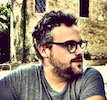
Ghirotto Luca
 luca.ghirotto@univr.it
luca.ghirotto@univr.it
 licia.landi@univr.it
licia.landi@univr.it
 giuseppe.longo@univr.it
giuseppe.longo@univr.it
 beatrice.melodiafesta@univr.it
beatrice.melodiafesta@univr.it
 anja.meyer@univr.it
anja.meyer@univr.it

Migliorati Lorenzo
 lorenzo.migliorati@univr.it
lorenzo.migliorati@univr.it
 045802 8135
045802 8135
 maria.mori@univr.it
maria.mori@univr.it
 paolo.nitti@univr.it
paolo.nitti@univr.it
 michele.picotti@univr.it
michele.picotti@univr.it
 stefania.pontrandolfo@univr.it
stefania.pontrandolfo@univr.it
 cristina.richieri@univr.it
cristina.richieri@univr.it
 lucasimone.rizzo@univr.it / lucasimone.rizzo@unipd.it
lucasimone.rizzo@univr.it / lucasimone.rizzo@unipd.it
 paola.schiano@univr.it
paola.schiano@univr.it
 federica.zantedeschi@univr.it
federica.zantedeschi@univr.it
Study Plan
The Study Plan includes all modules, teaching and learning activities that each student will need to undertake during their time at the University.
Please select your Study Plan based on your enrollment year.
1° Year
| Modules | Credits | TAF | SSD |
|---|
2° Year activated in the A.Y. 2019/2020
| Modules | Credits | TAF | SSD |
|---|
3° Year activated in the A.Y. 2020/2021
| Modules | Credits | TAF | SSD |
|---|
4° Year activated in the A.Y. 2021/2022
| Modules | Credits | TAF | SSD |
|---|
English laboratory 4th year
5° Year activated in the A.Y. 2022/2023
| Modules | Credits | TAF | SSD |
|---|
| Modules | Credits | TAF | SSD |
|---|
| Modules | Credits | TAF | SSD |
|---|
| Modules | Credits | TAF | SSD |
|---|
| Modules | Credits | TAF | SSD |
|---|
English laboratory 4th year
| Modules | Credits | TAF | SSD |
|---|
| Modules | Credits | TAF | SSD |
|---|
Legend | Type of training activity (TTA)
TAF (Type of Educational Activity) All courses and activities are classified into different types of educational activities, indicated by a letter.
Type D and Type F activities
Modules not yet included
Foundations and Teaching of Physics (2019/2020)
Teaching code
4S001184
Credits
9
Language
Italian
Scientific Disciplinary Sector (SSD)
FIS/01 - EXPERIMENTAL PHYSICS FIS/08 - PHYSICS TEACHING AND HISTORY OF PHYSICS
The teaching is organized as follows:
Lezioni
Laboratorio [Gruppo 1]
Laboratorio [Gruppo 2]
Laboratorio [Gruppo 3]
Laboratorio [Gruppo 4]
Learning outcomes
At the end of the course, perspective teachers will be able to project learning paths in Physics, differentiated between pre-school and primary school, based on explorative and experimental activities in the fields of kinematics, dynamics, universal Gravitation, forces and their measurement, friction, equilibrium, liquids, electrical phenomena, light and vision, thermal phenomena, magnetic and electromagnetic phenomena, physics of sounds. The laboratory modulus is part of the course and of the examination. Program. The course introduces in explorative and experiential modalities the following subjects, which are illustrated in detail in the slides on the e-learning website, differentiated between pre-school and primary school: elements of kinematics, the three principles of dynamics, gravity weight and universal gravitation, friction, forces and equilibrium, liquids, thermal phenomena, electric phenomena, magnetic and electromagnetic phenomena, sounds, light and vision.
Program
The course introduces in explorative and experiential modalities the following subjects, which are illustrated in detail in the slides on the e-learning website:
elements of kinematics, the three principles of dynamics, gravity weight and universal gravitation, friction, forces and equilibrium, liquids, thermal phenomena, electric phenomena, magnetic and electromagnetic phenomena, sounds, light an vision, work and energy.
Bibliography
| Activity | Author | Title | Publishing house | Year | ISBN | Notes |
|---|---|---|---|---|---|---|
| Lezioni | Ugo Amaldi | Dalla mela di Newton al bosone di Higgs PLUS | Zanichelli | 2018 | 978-88-08-73764-9 |
Examination Methods
Students are requested to produce a portfolio treating all the topics of the course with the specifications "knowledge of the teacher" and "doing with children"; a didactic project on one of the topics treated in the course; and two worksheets concerning the laboratorial activities.
The examination includes an oral discussion.
Details on the examination and deadlines are presented in the e-learning site.
Career prospects
Module/Programme news
News for students
There you will find information, resources and services useful during your time at the University (Student’s exam record, your study plan on ESSE3, Distance Learning courses, university email account, office forms, administrative procedures, etc.). You can log into MyUnivr with your GIA login details: only in this way will you be able to receive notification of all the notices from your teachers and your secretariat via email and soon also via the Univr app.
Stage e Tirocini
Le attività di tirocinio indirette e dirette, per complessive 600 ore pari a 24 crediti formativi universitari, come stabilito dal D.M. 249/2010, hanno inizio nel secondo anno di corso e si svolgono secondo modalità tali da assicurare un aumento progressivo del numero dei relativi crediti formativi universitari fino all'ultimo anno.La struttura generale del tirocinio prevede:
- II annualità 100 ore di tirocinio pari a 4 CFU
- III annualità 100 ore di tirocinio pari a 4 CFU
- IV annualità 175 ore di tirocinio pari a 7 CFU
- V annualità 225 ore di tirocinio pari a 9 CFU.
Il tirocinio è seguito da insegnanti tutor coordinatori e da tutor organizzatori distaccati, rispettivamente a tempo parziale e a tempo pieno, presso il CdS. Esso prevede attività che si sviluppano secondo modalità di partecipazione periferica e modalità di partecipazione attiva: tali attività dovranno essere, adeguatamente documentate da parte dello studente e saranno supervisionate dai tutor competenti.
La frequenza alle attività di tirocinio è obbligatoria.
Documents
| Title | Info File |
|---|---|
|
|
pdf, it, 115 KB, 23/06/21 |
Progetto Dinamo corsi di formazione continua
I corsi del Progetto Dinamo sono una proposta di formazione continua per i/le docenti della scuola dell'infanzia e primaria in servizio elaborata dal Corso di Studi in Scienze della Formazione Primaria dell'Università di Verona.
La loro frequenza, in numero limitato, è aperta anche agli studenti di Scienze della formazione primaria.
L'iscrizione non comporta oneri per gli studenti.
Per i corsi di 8 ore sarà riconosciuto 1 CFU nei crediti liberi; per quelli di 16 ore i crediti liberi riconosciuti saranno 2.
Le modalità di iscrizione saranno comunicate e gestite tramite i rappresentanti degli studenti.
Documents
| Title | Info File |
|---|---|
|
|
pdf, it, 198 KB, 29/08/22 |
Gestione carriere
Linguistic training CLA
Practical information for students
Documents
| Title | Info File |
|---|---|
|
|
pdf, it, 325 KB, 02/05/23 |
|
|
pdf, it, 212 KB, 02/05/23 |
|
|
pdf, it, 131 KB, 02/05/23 |
Student mentoring
Student login and resources
Graduation
Documents
| Title | Info File |
|---|---|
|
|
pdf, it, 434 KB, 07/02/24 |
|
|
pdf, it, 418 KB, 30/11/23 |
|
|
pdf, it, 131 KB, 19/03/24 |
eTwinning
Il Corso di SFP di Verona fa parte del Gruppo Europeo per la formazione eTwinning per i futuri insegnanti – Initial Teacher Education (ITE). Seminari di presentazione della piattaforma e delle sue potenzialità, introduzione alla comunità e/o laboratori sull’uso della stessa sono proposti annualmente come parte integrante dei Laboratori di Lingua Inglese per la Professionalità Docente, e quindi come parte dell’offerta formativa; per il II anno anche con attività progettuale in lingua inglese, studente-studente o a piccoli gruppi.
Per il I anno, a partire dall’ A.A. 2017/2018 è stato realizzato con il supporto dell’USR Veneto e la collaborazione delle ambasciatrici eTwinning un incontro seminariale di presentazione della comunità e piattaforma eTwinning, come parte del Laboratorio di Lingua Inglese per la Professionalità docente. Gli studenti svolgono attività di ricerca e reperimento materiale nel portale eTwinning, studiano alcuni progetti considerati “buone pratiche” e si confrontano con una breve attività in piccolo gruppo sui primi passi di introduzione e orientamento ad un progetto eTwinning. Solitamente sono coinvolti circa un centinaio di studenti.
Per il II anno, a partire dall’A.A. 2020/2021, è stato introdotto un Laboratorio eTwinning (12 ore – 1CFU) di progettualità didattica in lingua inglese. Gli studenti svolgono attività individuali all’interno della Comunità volte a costruire una rete di partner e cogliere ogni potenzialità offerta dalla piattaforma. Inoltre, viene proposta una simulazione progettuale, in piccoli gruppi, dall’introduzione dei partner alla valutazione e disseminazione dei risultati di un progetto eTwinning. Solitamente partecipano circa un centinaio di studenti. Al termine del modulo è richiesto un portfolio digitale in lingua inglese. I futuri docenti esercitano contemporaneamente competenze linguistiche, digitali e sociali facilmente riutilizzabili nella professione futura.
Per il V anno, a partire dal AA 2022/2023, è stato introdotto, all'interno del Laboratorio di Lingua Inglese, un Laboratorio eTwinning di progettualità didattica con un altro ITE (12 ore – 1CFU).
Nell'a.a. 2022/2023 è stata attivata e realizzata una collaborazione con SFP - Università di Cagliari.
Nell'a.a. 2023/2024 si è attivata una collaborazione con l'Università di Castilla-La Mancha (Spagna).
Le attività realizzate sono state presentate durante il Coordinamento Nazionale eTwinning ITE
- a Firenze il 17 e 18 marzo 2022
- e a Lecce il 15 e 16 maggio 2023





